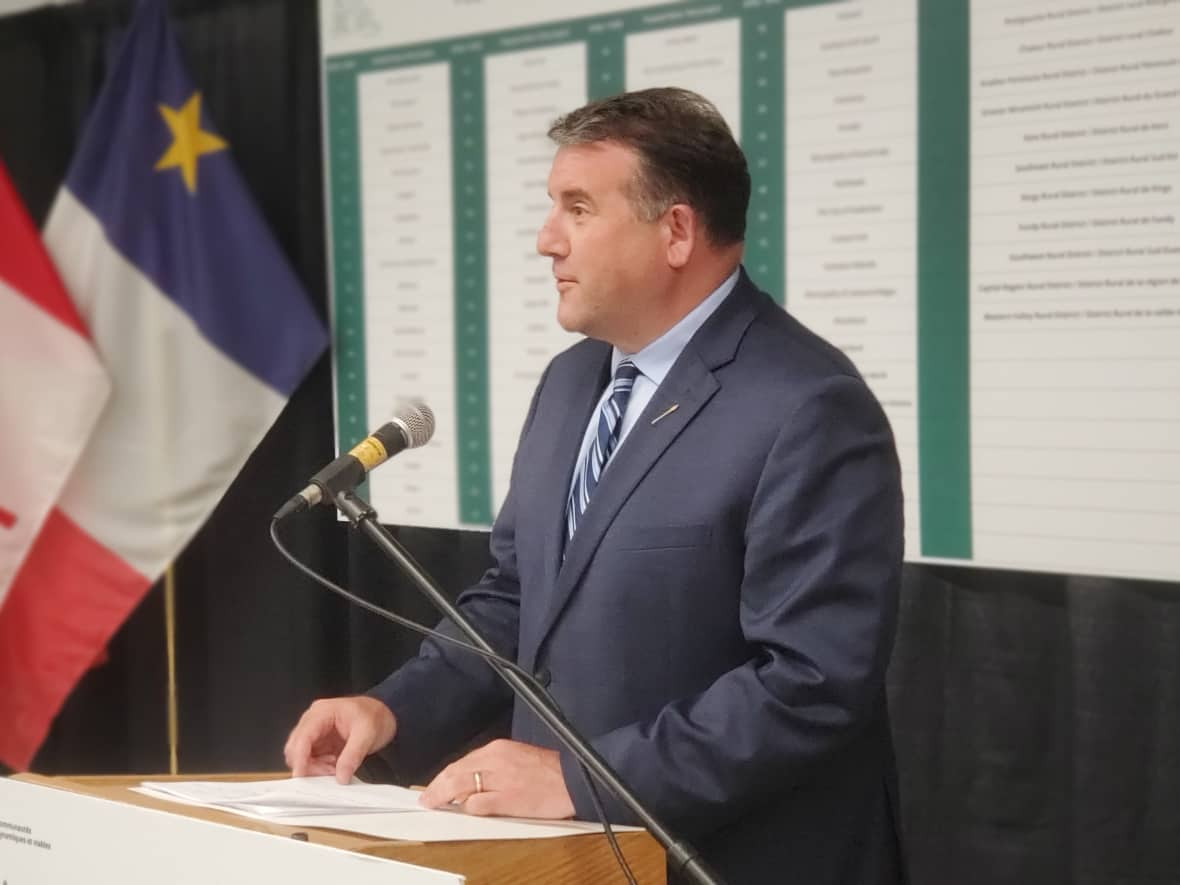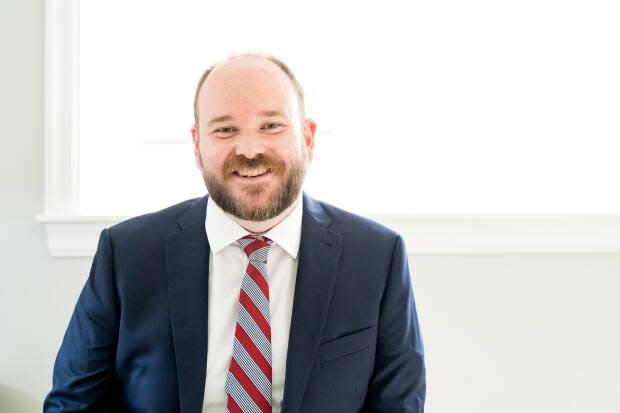Panel calls for overhaul of New Brunswick municipal funding

An expert panel is calling for changes to the way the New Brunswick government funds municipalities, steps that if implemented could affect budgets and tax rates.
The 21-page report by a two-person panel on behalf of the province examined the community funding and equalization grant system.
The report calls for doing away with aspects of the system, adding new measures, and other changes to account for local governance reforms that take effect Jan. 1.
However, the provincial government has already indicated it may not implement all of the 12 recommendations.
"We have heard calls from many local governments concerned with the level of change recommended and we have listened to them in what we will bring forward next week," Daniel Allain, the minister of local government and local governance reform, said in a statement. The statement didn't address what those concerns were.
Dan Murphy, executive director of the Union of Municipalities of New Brunswick, said the organization representing 61 communities across the province is waiting to see what the government actually does. He said municipalities are already drafting 2023 budgets.
"It's very critical for municipalities who are developing their budgets to understand what revenues they can count on," Murphy said.

The report was written by former provincial civil servant Nora Kelly and Pierre-Marcel Desjardins, a Université de Moncton professor with expertise in economics and local government.
he equalization system sees the province transfer tax revenue from some communities to others to ensure residents have comparable services. But how it works in practice has long been a sore point for municipalities.
"Part of the challenge is always just understanding how the formula works," Murphy said.
The current system has two main components: A core grant most communities receive, and an equalization payment some receive to ensure equitable service levels.
Under the existing system, Fredericton with a tax base of $8.5 billion received $1,967,081 in core funding this year, and nothing in equalization funding.
Saint John, with a tax base of $7.6 billion, received $2,573,168 in core funding and $15,264,329 in equalization.
Moncton, with a tax base of $9.8 billion, received $3,224,771 in core funding and nothing in equalization.
Report calls for cutting core grants
A tax base is the total value of property in a community.
The panel has recommended cutting the core grant aspect entirely.
Instead, it says to focus on making the equalization program boost financial capacity of municipalities with lower potential revenue than comparable municipalities.
The proposed system would group communities into five categories by type and population for comparison.
It compares a municipality's tax base per capita with the tax base per capita average for the group it's a member of to calculate the gap that needs to be covered by equalization. It would also consider a municipality's tax rate.
Rural tax rates likely to rise
The report also acknowledges tax rates are likely to increase in previously unincorporated areas.
"We also assume that tax rates in former [local service districts] will increase to cover their share of the administrative cost of the new municipalities," the report states, touching on an issue that's been a roadblock on previous reform efforts.
The reforms will also see regional service districts take on a role in services like economic development, tourism promotion, regional transportation and cost-sharing of recreational infrastructure such as arenas.
The commissions that include Saint John, Fredericton and Moncton will also have a role in paying for homelessness, mental health and poverty reduction services.
The report recommends the province fund half the cost of the additional services.
The report says the province's share should be linked to the tax base, increasing as that tax base increases, and distributed on a per capita basis.
Murphy welcomed the recommendation to cost-share the new services.
Roads subsidy
The reforms will see the province continue to pay for maintenance of roads in former local service districts absorbed into municipalities.
The report notes this will serve unevenly applied subsidy and should be accounted for in the funding formula.
It proposes the value of the province's contribution for roads in former LSDs be deducted from the equalization amount a municipality would receive. The amount deducted, the report says, should be distributed to other municipalities "losing money" under the new equalization program.
It says this would be a temporary step ahead of a second phase of financial reforms expected in the coming years.
The report also calls on the province to review its property assessment process given the fundamental role assessments play in the equalization program.
Desjardins and Kelly's recommendations were presented to the provincial government last month, but only publicly released Wednesday.


